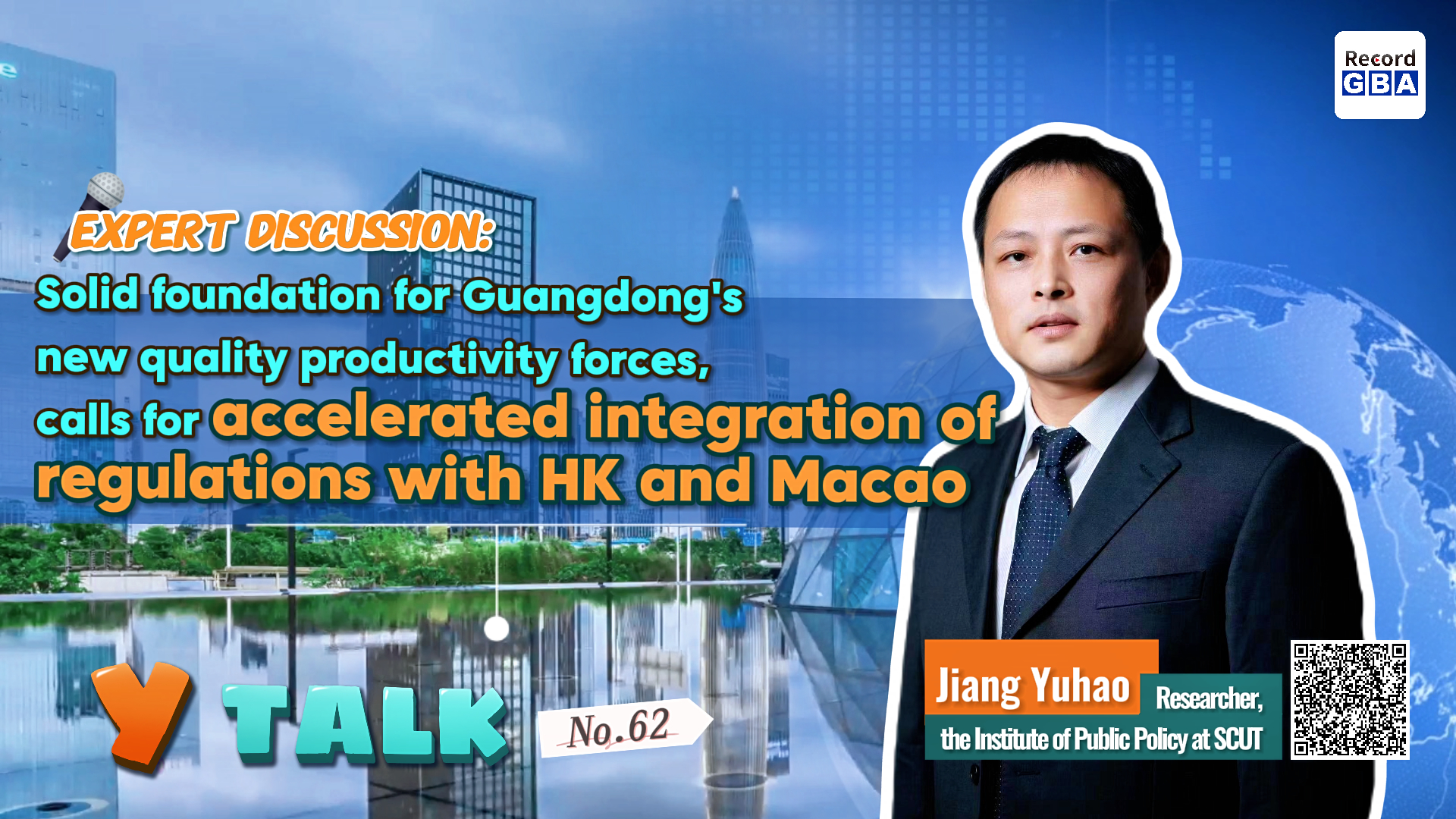
On March 29th, China's State Council Information Office held a Guangdong-themed press conference on "Promoting High-quality Development." Guangdong Province proposed to develop new quality productivity forces based on local conditions to inject vitality into high-quality development.
What are the advantages of Guangdong in developing new quality productivity forces?
How can we further promote the formation of new quality productivity forces?
In response to these specific questions, Jiang Yuhao, director of the National Governance Research Center of the Institute of Public Policy (IPP) at South China University of Technology, was interviewed by Yangcheng Evening News. He expressed great confidence in Guangdong's development of new quality productivity forces.

Guangdong has a solid foundation for developing new quality productivityforces. Jiang Yuhao said, "Guangdong has a solid manufacturing base, strong scientific research capabilities in universities, and in recent years has also tapped into the innovation resources of Hong Kong and Macao. In addition, Guangdong Province is implementing policies to support parallel exploration of multiple technological routes, which will facilitate the development of more emerging industries. In terms of industrial layout, relying on the Guangzhou and Shenzhen metropolitan areas, Guangdong has established a diversified industrial ecology. In summary, Guangdong's development of new quality productivity has very promising prospects."
The transformation and upgrading of traditional manufacturing industries are the main cradles for cultivating new quality productivityforces. Jiang Yuhao stated that in recent years, many traditional manufacturing industries in Guangdong have been transformed and upgraded through innovation and digitalization, achieving good results. "The toy industry in Shantou, for example, has upgraded the entire process from sales to after-sales service through digital means."
The scientific and technological resources of Hong Kong and Macao will also help Guangdong develop new quality productivityforces. Jiang Yuhao said, "Hong Kong is home to many top universities and scientists, and their research results have a strong demand for transformation in the mainland. Guangdong has a strong manufacturing industry that can translate these high-end research results into actual applications. Cooperation between Guangdong and Hong Kong can achieve win-win results."
Jiang Yuhao also gave suggestions for future cooperation in the Guangdong, Hong Kong, and Macao Greater Bay Area. He said that there are still some issues hampering the integration of regulations between Guangdong Province and Hong Kong and Macao, which need further exploration. "I understand that the next-generation Internet National Engineering Center in Nansha, Guangzhou, is promoting data interoperability among Guangdong, Hong Kong, and Macao, which is one of the explorations."
Source: Yangcheng Evening News
Y Talk·专家谈丨IPP专家蒋余浩:广东新质生产力基础坚实,望港澳规则衔接加速
3月29日,国新办举办“推动高质量发展”系列主题广东专场新闻发布会。广东省提出,将因地制宜发展新质生产力,为高质量发展注入活力。
广东发展新质生产力有何优势?
未来应如何进一步推进新质生产力的形成?
针对以上具体问题,羊城晚报近日专访华南理工大学公共政策研究院(IPP)国家治理研究中心主任蒋余浩,他对广东发展新质生产力非常有信心。
广东发展新质生产力有良好的基础。蒋余浩说:“广东有扎实的制造业基础,又有较强的高校科研力量,近些年还链接了港澳的科创资源;同时,广东省正在推行一些政策,支持多技术路线的平行探索,这将有利于发展更多新兴产业。在产业布局上,依托广州都市圈和深圳都市圈,广东已经形成了多元化的产业生态。总之,广东发展新质生产力非常有前景。”
传统制造业转型升级,是培育新质生产力的主阵地。蒋余浩表示,近年来广东已经有很多传统制造业通过创新以及数字化的引领,实现了转型升级,取得了很好的效果。“汕头的玩具产业,就通过数字化的手段完成了从销售到售后全过程的服务升级。”
港澳的科创资源也将助力广东发展新质生产力。蒋余浩说:“香港有很多顶尖的高校与科学家,他们的科研成果有很强的在内地进行成果转化的需求;而广东有强大的制造业,可以帮助这些高精尖的研究成果去转化、落地,广东和香港之间的合作,可以实现双赢。”
蒋余浩也对粤港澳大湾区的未来合作给出了具体建议。他表示,目前广东和港澳之间在规则衔接方面还存在一些问题,还需要进行探索。蒋余浩说:“我了解到,在广州南沙的下一代互联网国家工程中心,正在推动粤港澳数据互通,这就是很好的探索之一。”
记者丨曾潇
制图丨温泽广
特别鸣谢丨华南理工大学公共政策研究院(IPP)
翻译丨刘佳慧
-
Majestic dragon emerges from the sea: Yangjiang Port Bridge successfully joined
2024-03-31 23:18:44 -
New generation of Chinese "Super Microscope" unveiled! Construction of phase II CSNS begins in Dongguan
2024-03-31 23:19:00 -
New season sees multiple routes added to Guangzhou Baiyun Airport
2024-03-30 23:01:38 -
First batch of imported cardiac pacemakers under the 'Hong Kong-Macao medical connect' cleared customs in Guangzhou
2024-03-30 23:01:38






